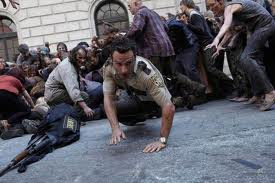Stop all the clocks, turn of the telephones, prevent the dog from barking with a juicy bone...
the new Arnaldur Indridason book is in my lap and I can’t wait to read it.
I love the Reykavick Mysteries, as his publisher has dubbed them.
The main attraction for me isn't the crimes they solve, but Detective Erlendur whose life is every bit as bleak as the Icelandic landscape. He's a man haunted by the disappearance of his younger brother, torn from his hand in a blizzard, never to be seen again.
It seems inevitable that the boy - who'd now be a grizzly man - is dead, engulfed by the snow, but like Erelendur you can't help clinging to the unspoken belief that he someone survived the blizzard and was taken in by a kindly but secretive family.
And therein lies the secret of a great series character - like Erlendur, he should be every bit as engrossing as the crimes themselves.
What every writer would give to create a character like that.
Some tips on creating a series character with staying power
1. Give them something unresolved - a case they didn't solve, a missing/troubled relative - Erlendur has both.
2. Make them different - a zombie/vampire/werewolf detective, an amputee, a war veteran mentally scarred by the horrors they've seen, a priest turned police detective, a detective in a country under occupation. A detective who sees into the minds of dead victims at crime scenes. Let your imagination run wild.
3. Give them flaws. A perfect human being is boring. An imperfect one with a hump, one leg and loaded with self-doubt. Now you're talking. Jeffrey Deaver struck gold with quadriplegic Lincoln Rhyme.
4. Put an obstacle in their way that's always there to keep them preoccupied. Perhaps they have an ill spouse/child they need to take care of. Maybe they're diabetic and need to eat regularly or they collapse, or they're addicted to booze or drugs or gambling, or they've got a serious illness no one must know about. Be creative. Think ‘what’s not been done before?’







